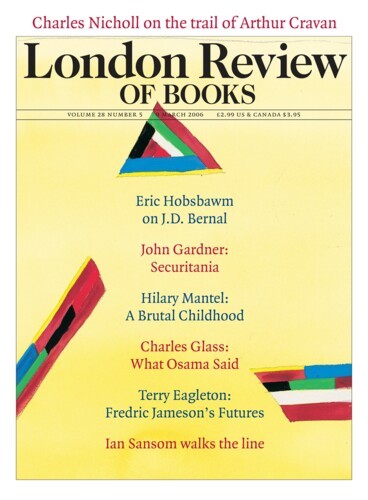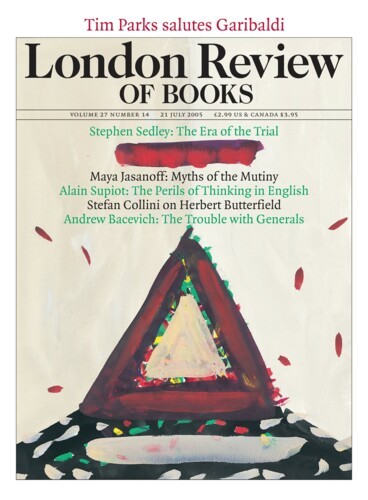Let in the Djinns: Richard Burton
Maya Jasanoff, 9 March 2006
Trieste, it has been said, is a nowhere of sorts: unreal, isolated, out of time, attractive to exiles, unknown to almost everybody else. So it was an apt city to serve as the final home of a man regarded as one of the most unreal, isolated and timeless figures of the Victorian era. Richard Burton arrived in the Adriatic port in 1873 as Britain’s consul. He had pretty much seen...


